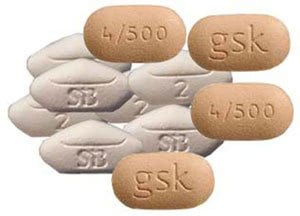Thiazolidinediones are a group of medications that help lower and control blood sugar in people who have Type 2 Diabetes. The medications that are available in the United States are Actos (pioglitazone), Avandia (rosiglitazone) and a mixed drug, Avandamet (rosiglitazone and metformin).
History of Thiazolidinediones
Thiazolidinediones were first used in the 1990’s to help people with Type 2 Diabetes. Rezulin was the first type to be used, but has since been discontinued in the United States and some parts of Europe because of the rare risk of getting serious liver problems. It has also been reported that Avandia users have a greater risk of heart attacks. In other reports it has been shown that when taking Thiazolidinediones there is a higher chance of getting heart issues, but this link between Thiazolidinediones has been unproven at this time.
How It’s Supposed To Help
Thiazolidinediones help the body lower its cell resistance to insulin, making it much easier for the body to handle. They are not meant to replace the insulin amount in the body, though. They also will not help the body produce more insulin. Thiazolidinediones are not meant to take alone and stop your special diets and exercise plans.
Thiazolidinediones Cautions
Not everyone is the ideal candidate for taking Thiazolidinediones. People who have liver disease should not take Thiazolidinediones. Children are also not allowed to take Thiazolidinediones because there are risks with them getting liver problems. People who have Type 1 Diabetes should avoid these medications. Women who are pregnant or nursing should also find a different option in medication. If an individual has eye or bone issues it is best to consult a Doctor before taking Thiazolidinediones.
- Do not take if you have liver disease
- Not for children
- Not for type 1 diabetics
- Not for pregnant or nursing women
- Consult your doctor first
The Thiazolidinediones Regimine
Thiazolidinediones can take up to three months to take effect. They should be taken every day. If the person starts having side affects such as heart palpitations, sudden weigh gain, and difficulty breathing they should contact their Doctor as soon as possible. The medication still should not be stopped if the person has Diabetes unless the healthcare provider gives the all clear. It is a good idea to have follow-up visits with the Doctor when using Thiazolidinediones. There should be tests done to check the person’s liver function, blood sugar level, and eye testing.
Side Effects of Thiazolidinediones
There are some side effects and risks when using Thiazolidinediones. Side effects someone may encounter include sinus infections, headaches, and upper respiratory infections. Other side effects that are commonly found in users are weakened bones, loss of appetite, and jaundice. Side effects that are more serious include heart failure, muscle pain, and weight gain.
- Sinus infections
- Headaches
- Upper respiratory infections
- Weakened bones
- Loss of appetite
- Jaundice
Benefits of Taking Thiazolidinediones
Thiazolidinediones can be a great addition for people who suffer from Type 2 Diabetes and want their body to help respond to insulin better. Before deciding to take a Thiazolidinediones medication, it is best to discuss the options with a healthcare provider who knows the persons health history and other medications he or she may be already taking. They are educated on the different types and will assist on getting the perfect medicine for the individual.
